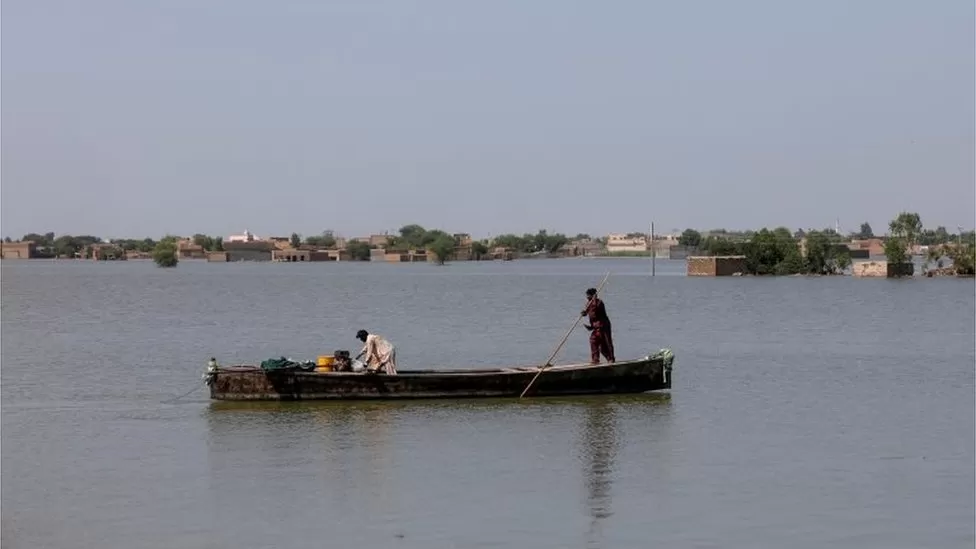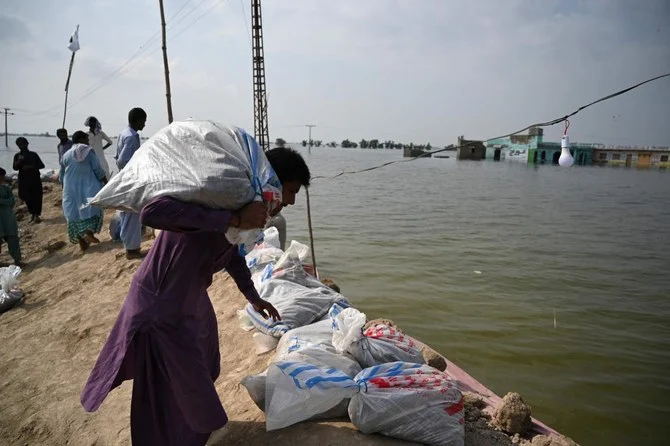
Teams are racing to rescue thousands still stranded in Pakistan’s worst climate-induced disaster in years.
“We see the water is now starting to come down,” provincial minister Jam Khan Shoro told the BBC. “If we didn’t make the breaches, several towns with big populations would have been destroyed and many more people in danger.”
Floods in Pakistan have affected some 33 million people and caused at least 1,343 deaths, Pakistan’s National Disaster Management Agency said.
Officials have said a little over a quarter of a million people are in shelters, a fraction of those who need help.
Damaged infrastructure is also hampering aid and rescue operations, which cannot keep pace with demand. Some connecting roads in Sindh province have either collapsed, are flooded or are backed up for days with queuing traffic.
Manchar Lake straddles two districts – Jamshoro and Dadu – with an urban population of more than 1 million.
Johi, a town near the lake, has been surrounded by water and now resembles an island. Its residents have built an improvised dyke to slow down water coming into the area, as they did during floods in 2010. Authorities told the BBC they do not know yet if the measure will work this time.
Meanwhile, the UN children’s agency Unicef has said more children are at risk of dying from disease in Pakistan because of the shortage of clean water.
This year’s floods – Pakistan’s worst climate-induced natural disaster in years – have been caused by record torrential rainfall and melting glaciers in the country’s northern mountains.
Pakistan’s climate change minister, Sherry Rehman, told the BBC that richer countries needed to do more to help poorer countries faced with the devastation caused by climate change.
“Richer countries have got rich on the back of fossil fuels… and have been burning their way to kingdom come,” she said in an interview with BBC News.
The disaster has highlighted the stark disparity between countries that are the largest contributors towards climate change and countries that bear the brunt of its impact. Pakistan produces less than 1% of global greenhouse gas emissions but its geography makes it extremely vulnerable to climate change.
Low-emission countries like Pakistan, Ms Rehman said, “are now feeling the heat – quite literally of other people’s development and greed”.
“We have made an appeal to the developed world that this is the time to actually do more.”
She acknowledged flood aid from countries including the US, Qatar, Turkey – but said international support would be needed to help make Pakistan’s infrastructure climate resilient.
“We neither have the money or the technical capacity.”























